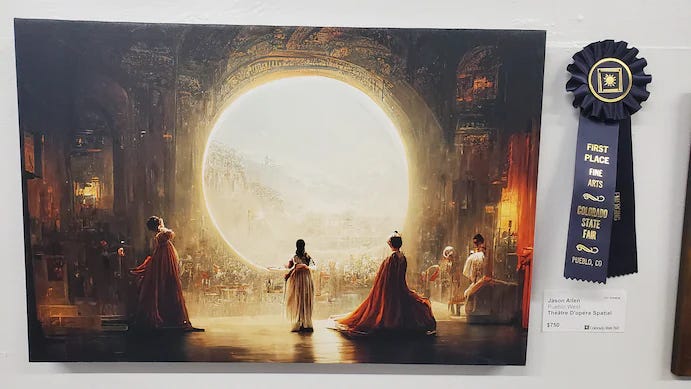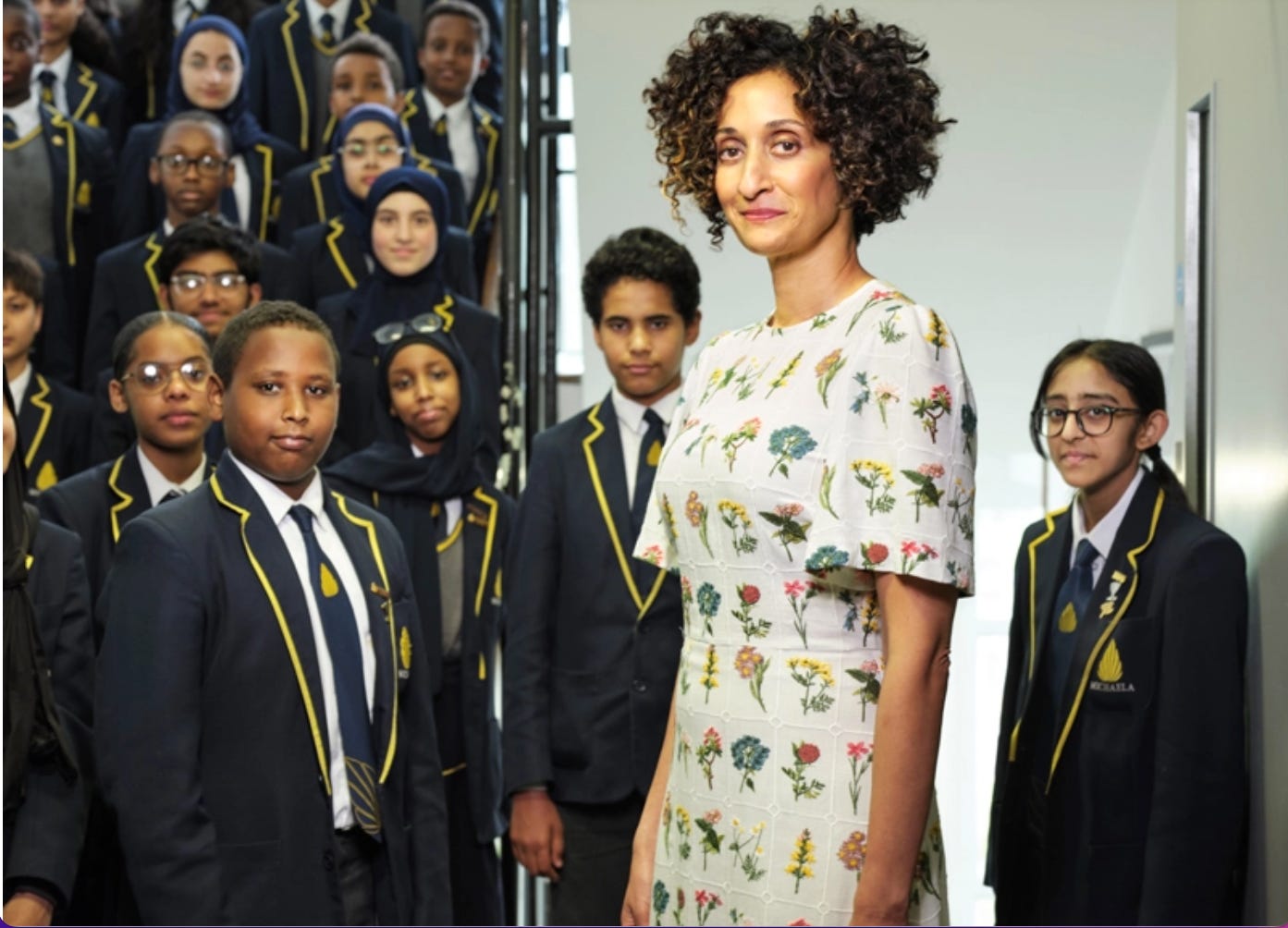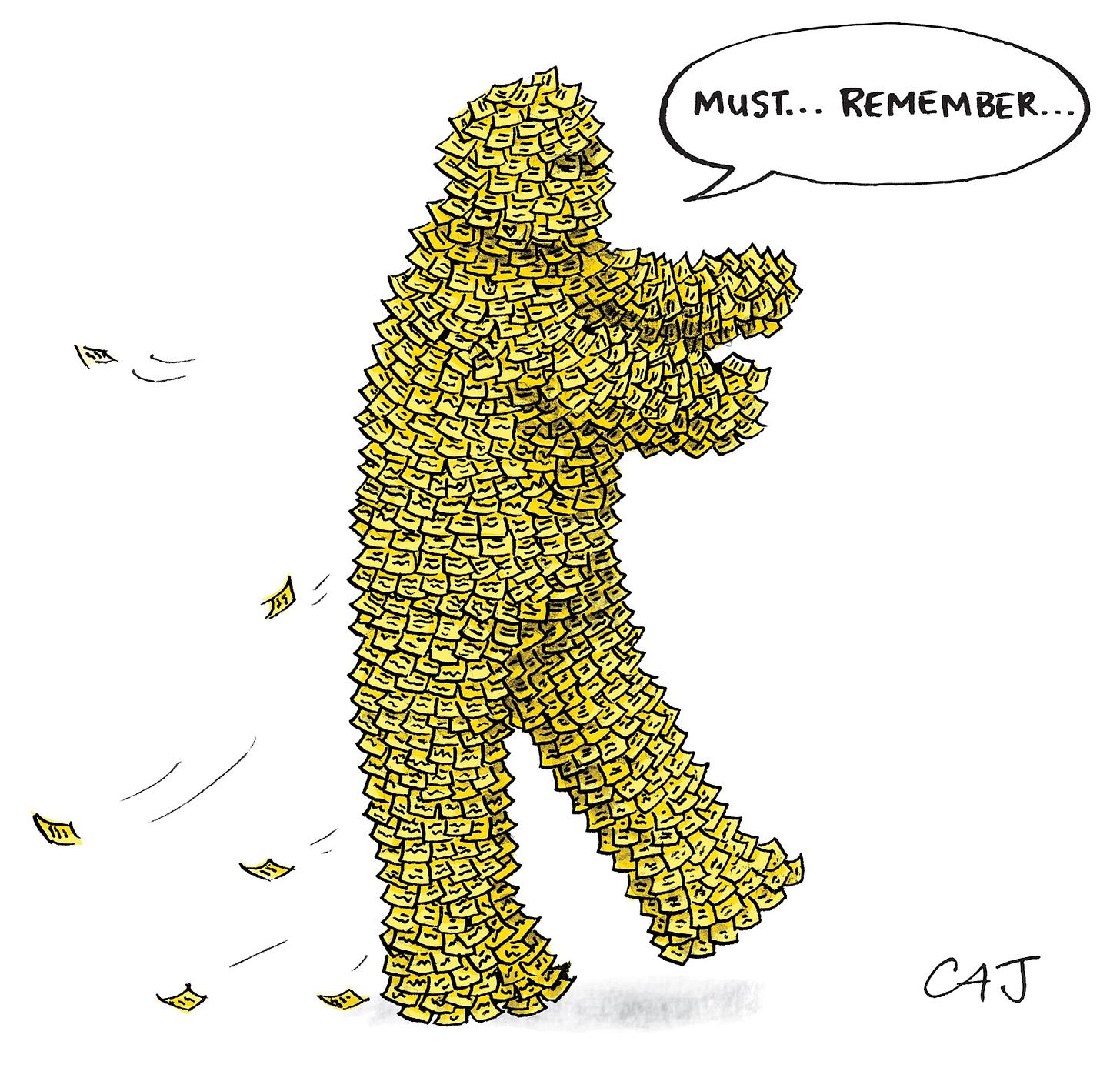Substack Reads: The film world’s double standards, Britain’s strictest headmistress, and the future of AI art
Hello and welcome to another edition of Substack Reads. While the subject matter of this week’s handpicked posts is a mixed bag, you can count on one thing: great writing from across Substack.
Former Empire editor in chief Terri White delves into the double standards faced by female filmmakers. Leah McLaren interviews Britain’s strictest state-school principal. And Nadia Bolz-Weber shares her lessons on how to be salty. We hope you enjoy it!
We also have more reader recommendations this week. Thanks to those who shared their suggestions! Be sure to add yours in a comment below.
FILM
The double-standard struggles of a female director
The film industry is still a gendered world, writes screenwriter Terri White. Why else is the Don’t Worry Darling director Olivia Wilde held to such a different code than her male counterparts?

In my six years as Editor-in-Chief of EMPIRE Magazine, I saw hundreds, thousands of films (and TV shows) launch. I saw the press conferences, the junkets, the premieres, read the headlines and columns and interviews; I went on set visits, did some of those interviews myself, walked the red carpet before the talent had even left their hotel and studied the reviews. And out of those hundreds, thousands, I struggle to recall one that has come close to the circus of toxicity and triviality that Don’t Worry Darling has turned out to be. And more specifically, that of a director who was as rinsed and wrung out as Olivia Wilde. Most strikingly, this isn’t just the stuff of tabloids; it’s seeped through into film culture, with critics and journalists and readers swept up in speculation and giddy fascination at a woman having her work barely taken seriously while her character and privacy are cracked open.
SCIENCE
The bad environmentalist
Is a microwave really better than locally sourced food? Or a plastic bag better than a paper one? Data scientist Hannah Ritchie unpacks how doing what’s right for the environment isn’t always what we think
—Hannah Ritchie in Works in Progress
It’s something that we need to overcome. The fact that our intuitions are so ‘off’ is really a problem. At a time when the world needs to eat less meat, we’ve seen a pushback against meat substitute products because they’re ‘processed’. When we need to be using less land for agriculture, we’ve seen a recent resurgence in organic, but more land-hungry, farming. When more of us need to be living in dense cities, I hear more people dreaming of a romantic life in the countryside with a self-sufficient garden plot.
I’m currently writing a book about the opportunity we have to be the first generation that leaves the environment in a better state than we found it. I need to lay out the behaviours that move us forward, not backward. This is a tall order: I need to convince people of a vision that seems intuitively wrong to them. It’s hard to undo millennia of social programming.
EDUCATION
The strictest headmistress in Britain
Katharine Birbalsingh runs one of Britain’s top-ranked schools, free to attend and catering almost entirely to low-income minority kids. So why do progressives dislike her so much?
Today [Birbalsingh] is a sought-after public speaker, pundit, and feisty and voluble Twitter presence for her nearly 90K followers. Last year she was appointed the Tory government’s “Social Mobility Tsar,” an appointment greeted in the British press with mixed reviews. She has since served as chair of a commission focused on the issue of changing economic outcomes for poor British kids through education.
While it would be daft to question Birbalsingh’s commitment to education, she is often criticised on the left for being a Conservative party darling and cultural warrior—a pretty accurate description in spite of her insistence to the contrary. Then again, surely the more interesting question is this: Do her radical teaching theories work in practice?
TECHNOLOGY
The extreme progress of AI art
The discourse around whether art generated by artificial intelligence counts as art is missing a trick: it’s developing far faster than we could ever have imagined
—Alberto Romero in The Algorithmic Bridge

As a given technology evolves, and with it our understanding of its potential, people’s skills will get sharper—and, in the case of the creative kind, our judgment of what deserves praise, harsher. But not everyone’s skill set will develop accordingly. Once photography matured, it was very easy—for experts, at least—to recognize if a pic was the deed of a professional photographer or an amateur one. Again, the same will happen with AI art models. Only those who are willing to take the time and dedication to, first, understand their inner technical workings, second, explore what’s possible to create with them, and third, master the skills required to get it done are those we will eventually call artists—or AI artists.
The museum of memes
What will museums of the future hold: 10k NFT projects? TikTok compilations? Designer, programmer, and artist Ben Follington explores how ideas survive over time
—Ben Follington in the shimmering void, recommended by Shane O’Mara
Stories, images, films, games, music, etc. all point to some level of preconceptual understanding in our minds. Perhaps these media reach the Jungian unconscious, where they resonate with our primordial archetypes. Perhaps they simply point to fragments of the shared human experience, showing us we’re never alone in the most fundamental of ways. Artists compress these wisdoms into artwork in a similar sense to nature compressing structure and behaviour into genes. DNA itself is an interpreted language; it cannot be understood without the surrounding chemical context. Similarly, art encodes memes into forms that only make sense when considered by human minds (at least for now). Somehow, just like a robust gene, great art carries its message across generations, borders, and even millennia.
FAITH
How to be salty
For years, memoirist and minister Nadia Bolz-Weber thought the bible’s Sermon on the Mount was for people who had their ducks in a row, aka not her—that is, until she reread the text without its formatting and saw something new
—Nadia Bolz-Weber in The Corners
When Jesus says things like, you are the salt of the earth and the light of the world, I think for sure he doesn’t mean me.
I mean, surely Jesus means people who don’t have drinking problems and who never post angry pictures online of them making obscene gestures at bakeries—fancying it to be “activism”—and surely those who Jesus would call the salt of the earth and the light of the world are a superior class of people nothing like me. This is what I told myself as I was trying to figure out what I related to in our text for today.
So, curious to know more, I went into the Sermon on the Mount in the Gospel of Matthew to try and discover what I could about who this special class of awesome, salty, light-bearing people were.
CARTOON
And finally…
—Carolita Johnson in ToonStack
Substack Reads is a weekly roundup of writing, ideas, art, and audio from the world of Substack. Posts are recommended by staff and readers, and curated and edited from Substack’s U.K. outpost by Hannah Ray.
Got a Substack post to recommend? Tell us about it in the comments.















One of the best pieces I've read in the past week on Substack has been on the noise surrounding how few copies some books seemingly sell. This piece unpacks the claims really well (and be sure to read the comments): https://countercraft.substack.com/p/no-most-books-dont-sell-only-a-dozen
I really enjoyed this piece on death in London: https://theroost.substack.com/p/on-death-in-london?utm_medium=email (be affluent if you want a nice spot)
And if like Thelonius Monk, Ted Gioia has you covered: https://tedgioia.substack.com/p/the-plan-to-turn-thelonious-monk?utm_medium=email
Great list! My sis and I just had Leah McLaren on our Reframeables podcast - the same wit and intelligence you read in her substack shows up in live conversation! That convo will be out at the end of September - anyone who is keen on Juvenescence will want to listen! Dets in our Reframeables substack.